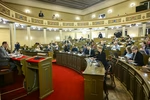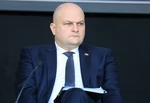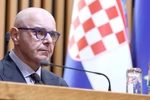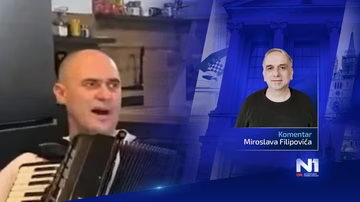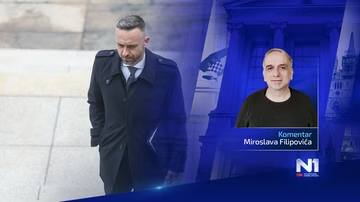
At its last meeting of the year, which took place on Friday, the Croatian government adopted conclusions that will ensure continued support for citizens in 2025. These include free rail transport for students and pensioners and debt cancellation for citizens in areas affected by the earthquake.
In an effort to create equal access to free local and regional transport for children and students, increase mobility, support demographic revitalisation and improve quality of life and living standards, the government approved the continuation of the free public rail transport project for children and students in primary and secondary schools next year. A total of 3.3 million euros has been allocated for this project in the state budget.
Aid for citizens in earthquake regions continues
The government also approved the continuation of the project for free rail transport for pensioners and people over 65 with an estimated budget of 2 million euros for next year.
In addition, the government has decided to continue the project for free rail transport for full-time students, the cost of which is estimated at 3.34 million euros for 2025.
Aid for citizens in the areas affected by the earthquake will continue over the next six months. The government has made decisions on debt cancellation for electricity and heating bills as well as for the subscription fee for public television. Free rail transport for citizens in these areas will also continue and the toll exemption on the A11 Zagreb–Sisak motorway will be extended.
The Government gave its consent to the Ministry of Veterans' Affairs to sign an agreement on granting subsidies for the expansion of the network of veterans' centres in the amount of almost 80 million euros, of which 41.5 million euros will be financed from the European Regional Development Fund.
Psychosocial support and health care for Croatian war veterans and victims
Following the successful opening of four veterans' centres (Daruvar, Petrinja, Sinj and Sibenik), there are plans to expand the network with five new centres in Krapina, Senj, Virovitica, Osijek and Biograd na Moru. The aim is to invest in infrastructure to provide psychosocial support and healthcare for Croatian war veterans and victims of the Homeland War. Construction is expected to start in 2026.
During the meeting, the government also adopted three programmes for the reconstruction of earthquake-damaged buildings, the construction and renovation of state-owned housing in state-subsidised areas for young people and young families and for solving problems related to protected tenants.
The programme for the renovation of buildings damaged by the earthquake is intended to facilitate the complex structural renovation of multi-apartment buildings.
The programme for the construction and renovation of state-owned housing in state-supported areas, which is aimed at the housing needs of young people and young families, will be financed from the Competitiveness and Cohesion Programme 2021-2027 and endowed with 40 million euros. Croatia will contribute 15% from the state budget. The 46 million euros available will be enough to build 16 apartment blocks offering around 400 new housing units.
Programme for affordable housing for young people
"This programme, in cooperation with local authorities, will provide young people with affordable and suitable rental housing to solve their housing problems," said Construction Minister Branko Bacic.
The programme for the construction of new housing or the renovation of existing housing will only be determined once the Ministry of Construction has processed the applications of local governments, which will sign agreements with the Ministry.
The programme for protected tenants is based on the implementation of the ruling of the European Court of Human Rights in the Statileo v. Croatia case. The implementation of the relevant regulation will start at the beginning of the new year, after the register of private flats occupied by protected tenants has been established.
It will give the owners of flats that were expropriated after the Second World War the opportunity to reclaim their property and ensure that the protected tenants are taken care of, which is largely at the expense of the state, Bacic concluded.
Kakvo je tvoje mišljenje o ovome?
Pridruži se raspravi ili pročitaj komentare



 Srbija
Srbija
 Bosna i Hercegovina
Bosna i Hercegovina
 Slovenija
Slovenija













